New Shepard: Bezos claims success on second spaceship flight
- Published
The test flight took place on Monday - Footage from Blue Origin
The Amazon.com entrepreneur Jeff Bezos has claimed success on the second flight of his New Shepard spaceship.
Intended eventually to carry people just above the atmosphere, the re-usable vehicle launched from west Texas on Monday with no-one aboard.
Both parts of New Shepard - the capsule and its propulsion unit - landed safely, Mr Bezos' company said.
On the maiden outing in April, the propulsion module was lost on the way down because of a hydraulic failure.
True to his way of working, the US billionaire gave no specific notice of the flight, stating last week only that another mission would occur "very soon".
This means all the video and information about the event have come out directly from Mr Bezos' space operation, Blue Origin.
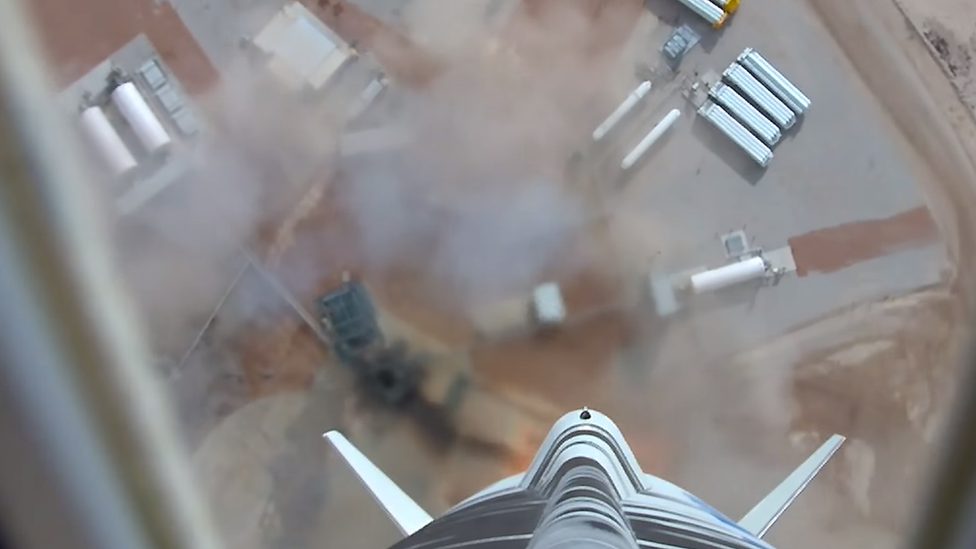
Cameras on board the craft captured the view down at lift-off
New Shepard has the capability to transport six individuals to just above 100km in altitude. It reached this mark during Monday's test, ascending to 329,839ft (100.5km).
Its propulsion unit is designed to take off and land vertically so that it can be used time and time again.
Following the test flight, that unit touched down just 4.5ft (1.4m) off the centre of the target pad.
The pressurised passenger capsule separates from this booster at high altitude, its momentum carrying it into space, before it too comes back to make a soft touchdown via a set of parachutes.
The astronaut vessel would also be put back into service.
The idea of a fully re-usable space vehicle has been a hard one to realise.
A number of concepts have been tried, with varying degrees of success. But nobody has yet taken a design to full commercial exploitation - something Mr Bezos aims to change.
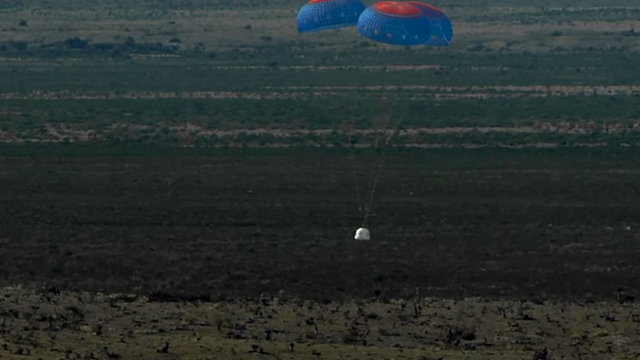
New Shepard's astronaut module, unmanned at this stage, landed safely via parachutes
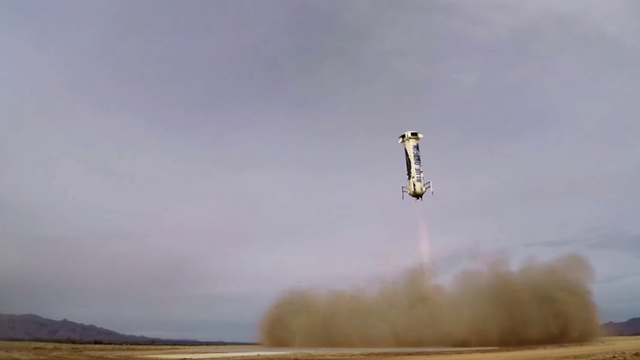
The propulsion unit also landed safely, lowering itself vertically
New Shepard is likely to fly in the first instance as a platform for science, allowing researchers to run experiments during the few minutes of weightlessness experienced in the capsule at the top of its arc. This commercial offering could start as early as next year.
These unmanned missions would help prove the vehicle's readiness to carry fare-paying passengers.
The business model being proposed is similar to that of Virgin Galactic and Xcor - two other American companies that are also developing sub-orbital vehicles.
Their offering differs in that they will be flying rocket planes that take off and land from a conventional runway.
Despite his somewhat secretive approach, Mr Bezos has announced a number of major space initiatives of late.
His company Blue Origin will provide the engines for the next generation of the rocket that today launches Nasa's interplanetary probes and many of America's national security missions.
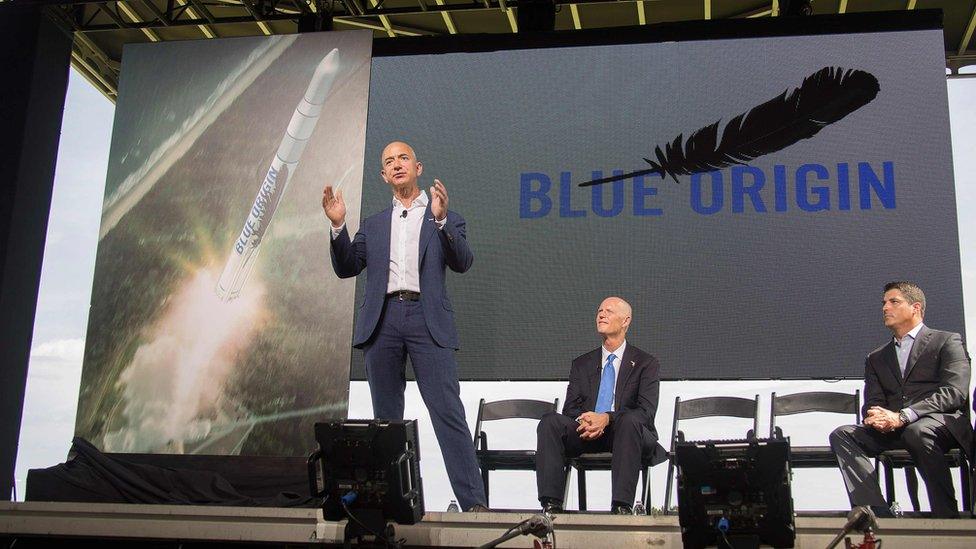
Mr Bezos discusses his plans for launching rockets from Florida
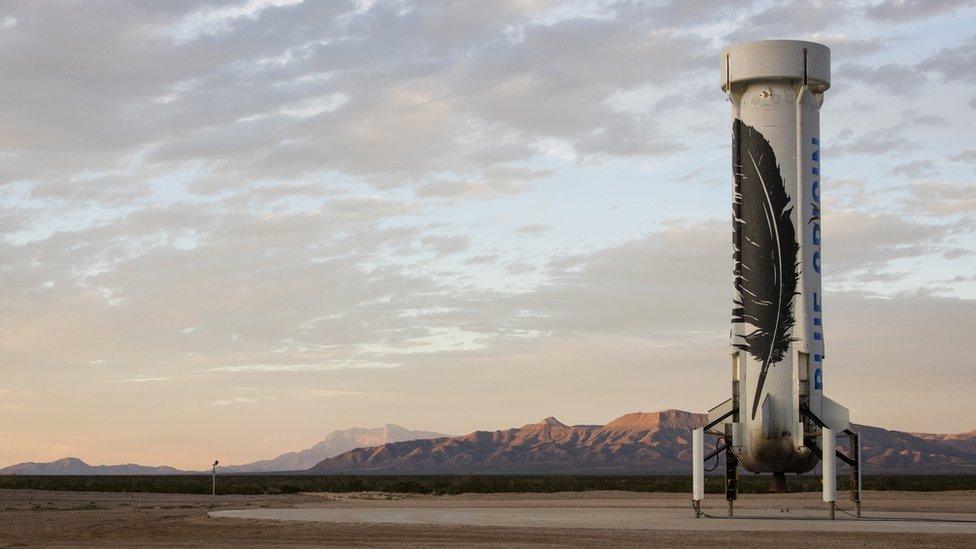
The New Shepard rocket lives to fly another day
Blue Origin has also taken control of one of the historic launch pads at Cape Canaveral Air Force Station in Florida.
Mr Bezos wants this to be the home of a big re-usable rocket that could deliver people and satellites into orbit.
Last week, the self-confessed space geek put on display a refurbished Saturn V rocket engine.
The power unit, which helped hurl the Apollo 12 mission off Earth in 1969, had been recovered by the entrepreneur from the bottom of the Atlantic Ocean.
Jonathan.Amos-INTERNET@bbc.co.uk, external and follow me on Twitter, external.
- Published15 September 2015
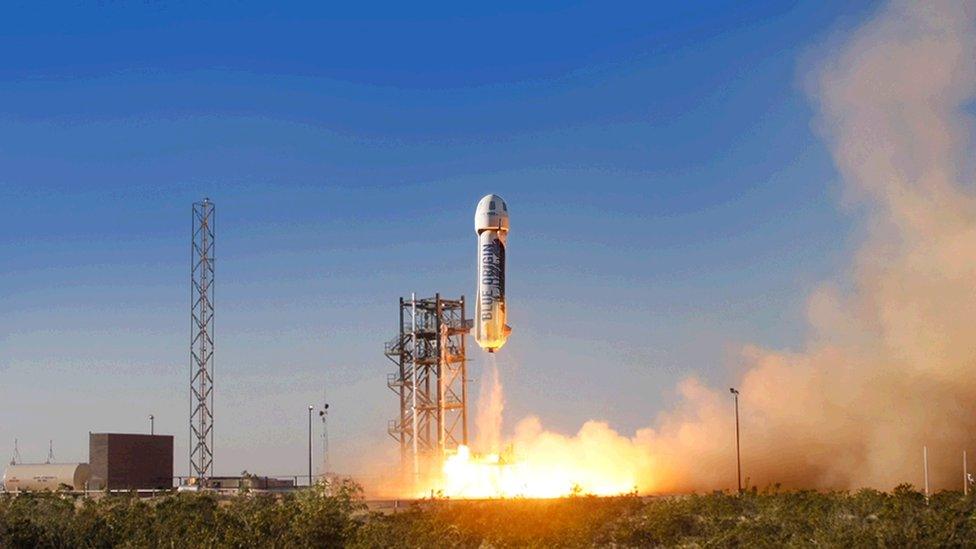
- Published30 April 2015
